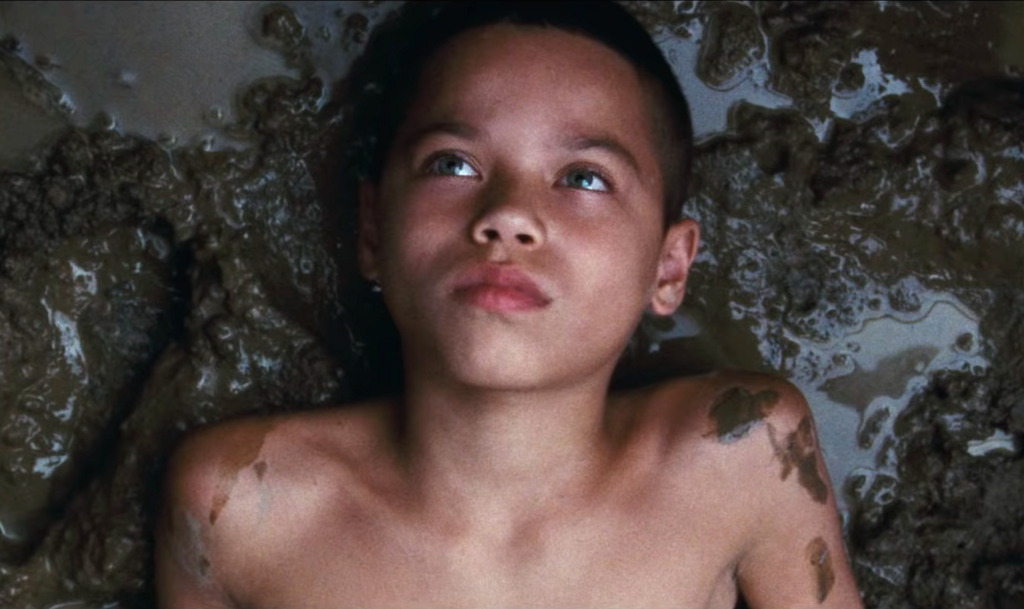Interviews
Crystal Hana Kim Doesn’t Want to Write the ‘Perfect Korean’
Crystal Hana Kim Doesn’t Want to Write the ‘Perfect Korean’ The author of “If You Leave Me” is thinking beyond the pressures of representation

Crystal Hana Kim is the debut author of If You Leave Me, a sweeping, poignant story of war, love, and the gifts and bindings of family. Set in Korea during the 1950s and ‘60s, If You Leave Me is told from five perspectives, but its heart is Haemi Lee. As a young woman, Haemi is pursued by two men: Kyunghwan, her dearest friend and fellow refugee at a camp in Busan, and his cousin Jisoo, a chivalrous, older man from Seoul, who can offer her family the security they need to survive the brittle poverty they’ve faced during the war.

After Haemi chooses between these two men, a story far larger than a love triangle unfolds. The novel follows Haemi through orphanhood, motherhood, and marriage. Kim is uncompromising in her portrayal of the imprint the war leaves on Haemi, and, ultimately, the lives of her daughters. Epic in its scope, yet sensitive to the textures of daily life, If You Leave Me is immersive, heartbreaking, and wholly memorable.
Kim and I know each other as recent debut novelists, graduates of the Columbia MFA program, and fiction writers committed to writing women, their inner lives, and troubled contexts. We talked about literature on bad mothers, the pressure of representing one’s place of origin, and how to tell a story that is true to the complexities of character and history.

Naima Coster: What was the seed that started If You Leave Me?
Crystal Hana Kim: I had always loved writing about women, particularly women pushing against social and cultural constraints. I loved writing about mothers and daughters, and one of my earliest short stories was actually from the perspective of Solee, who is a character in If You Leave Me that readers will encounter much later in the narrative. And of course, I grew up hearing my grandmother’s stories about the Korean War — her stories were part of me for a very long time, and so when I decided that the pieces of fiction I had written could become a novel, I started with the Korean War.
I did a ton of research because I wanted to make sure I was getting these details right. I read texts about the war and about Korean history, of course, but I also wanted to get the feel for everyday life, so I pored over photographs and watched movies and documentaries. I wanted to transport the unfamiliar reader and immerse them in sensory details so that they could imagine themselves right alongside my characters.
I grew up hearing my grandmother’s stories about the Korean War — her stories were part of me for a very long time, and so when I decided to write a novel, I started with the Korean War.
Coster: Was there anything in particular that you found in your research that was especially generative for you?
Kim: The City History Compilation Committee of Seoul published these huge books full of pictures of Seoul, broken up into ten-year periods. Those photos were helpful because they included images of schools, homes, marketplaces, and more. I checked out the whole collection, spanning about 60 years, and studying all of the photographs helped me to see how dramatically Korea had to rebuild itself after the war.
Coster: I was so invested in the lives of your characters, and their interiors. It’s an astonishing feat given how very many people we’re following. My first novel is also told from multiple points of view, but I juggled only two voices: a mother and a daughter. There are five points of view in If You Leave Me. Was there anything that surprised you about the way the voices ultimately share the novel?
Kim: I’ve always loved polyphonic novels. I think various perspectives can show us a richer picture of each person’s life because we see how everyone views each other, how everyone reacts to life events. I always knew I would alternate between Haemi, Kyunghwan, and Jisoo. For me, Haemi is the main character, but in order to understand how society viewed women and in order to fully develop Haemi’s love triangle with Kyunghwan and Jisoo, I knew I needed all three voices.
As I said before, I had written a short story from Solee’s perspective already as a standalone piece, so it was an easy decision to incorporate her voice into the narrative. I thought having Solee’s perspective could reveal how the next generation has been affected by this war, by Haemi and Jisoo and Kyunghwan’s choices throughout the years.
A Child’s Story About a Love Triangle
Coster: How did Hyunki, Haemi’s brother, make it into the novel? He was one of the characters whose point of view most surprised me, but his story is so moving and central to the story of the larger family.
Kim: Hyunki came last, actually. I realized that this brother-sister relationship is integral to the whole novel, and that Hyunki would be the perfect vehicle to show a different side of Haemi. I also thought he could show a different side of the political context in Seoul in the 1960s.
I love Hyunki — I mean, I love all my characters — and I feel a great tenderness toward him. He’s so young and hopeful and naive, and I think he in many ways shows what could have been possible for Haemi, in terms of receiving an education, if she had been born during a time with greater gender equality.
Coster: That different side of Haemi seems really crucial. I wondered whether Haemi might be considered “a bad mother.” I am fascinated by stories that are sensitive to the pressures of motherhood and the way we see mothers. How do you see your book fitting in — or not — to the literature about “bad mothers”?
Kim: I’m fascinated by stories about “bad mothers” too. There’s this expectation that a mother is only good if she gives everything of herself, if she has no desires or needs or goals of her own. I wanted to push against that, to complicate how we view mothers as much as possible so that we can break free of this dichotomy between “good” and “bad” motherhood. Haemi to me is a complex woman, which means that she is a complex mother, sister, lover, daughter — just as we all are.
I think Haemi is trying her best with the resources that she has. I think that some days, motherhood feels like a prison to her, and on other days, the love she has for her children is all that she needs in the world. I don’t think there is such a thing as a “bad” or “good” mother, really, so I hope that the literature on motherhood we have right now continues to expand to show mothers of all kinds, during their most difficult moments as well as the easy, exuberant moments.
There’s this expectation that a mother is only good if she gives everything of herself, if she has no desires or needs or goals of her own. I wanted to push against that.
Coster: I think in both of our novels, the mothers are fighting to be seen just as women and people with ambitions and interiors and lives outside of their roles in the family system. It’s that struggle that makes them dynamic and interesting.
Kim: Yes, I saw Mirella, the mother in your book, struggle in the same way that Haemi struggles! They are both pushing to be seen and heard beyond their roles as mothers, and both are constantly ignored.
Coster: I was struck by how both love interests, Jisoo and Kyunghwan, adore and also hurt Haemi. And yet, I found myself consistently rooting for Kyunghwan, her childhood friend, from the beginning to the end. What were you hoping for as you wrote the love triangle, and is that different than what you ultimately decided on for Haemi in the book?
Kim: I’m hopeful that readers will empathize with all three of these characters not only in terms of this love triangle, but as survivors of war. I’m hoping readers will feel both love and frustration for them all. The choices they make are so representative of their personalities, which in turn shows how they have been shaped by the violent circumstances of their teenage years.
I think Kyunghwan represents the most romantic choice, so I’m expecting readers to root for him the most. I’ve actually already heard from other readers who said they were rooting for him too! But I also do hope readers understand and care for Jisoo as well.
I personally don’t think Haemi needs either of these men in her life. But whether or not Haemi realizes this and whether or not readers see this is not up to me. Though I created Haemi, I had to follow her character and the choices I knew she would make, even if I, as a person, would disagree with those choices.
I personally don’t think Haemi needs either of these men in her life. But whether or not Haemi realizes this and whether or not readers see this is not up to me.
Coster: Speaking of readers, I wonder whether you felt any representational pressure as you wrote to recover themes or ideas that are important to you, your family story, your sense of Korean history?
Kim: Ah, yes, that representational pressure. One of my uncles told me to make sure I was making the Korean people proud, to make sure I wrote about us in a positive light. But as a writer, my goal is to delve into the mindset of my characters, not to use them as vehicles to represent some idealized version of the “perfect Korean.” I understand where my uncle was coming from — there are not many novels written about the Korean people, my parents and uncles and aunts have experienced racism here in America, so why not write about the Korean people in a positive way? I get that, completely. But as a writer, my goal is to create as rich and moving a story as possible, and in order to do so, I need to write characters that are complex, full of ambiguity and depth.
I did, at the same time, want to make sure I represented this particular time in Korean history, as experienced by these particular characters, as accurately as possible.
As a writer, my goal is to delve into the mindset of my characters, not to use them as vehicles to represent some idealized version of the “perfect Korean.”
Coster: Why do you think If You Leave Me is already resonating with people?
Kim: I think a lucky confluence of events have helped my book get some early recognition. Korea has been in the news lately; people are curious to learn more about the Korean War, and fiction is an enjoyable way to learn more about history. We are in a moment where fiction about and by marginalized voices are being taken seriously and are being actively sought out by readers. We are talking more openly about motherhood and what it means to move through a patriarchal world as a woman. And of course, all of these themes are explored through the lens of a love story. And who doesn’t love a good love story, right?










